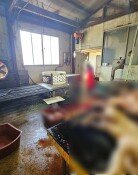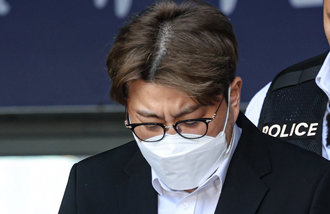A former ICTY judge unqualified to teach at law school
A former ICTY judge unqualified to teach at law school
Posted October. 04, 2016 07:11,
Updated October. 04, 2016 07:21
Sungkyunkwan University Law School has turned down to hire Judge Kwon O-Gon as a lecturer. He is a much respected judge in the international law sector, who worked as former vice president of the International Criminal Tribunal for the former Yugoslavia (ICTY) and attorney at Kim & Chang, South Korea’s largest law firm. Kwon was invited to teach international criminal law from the fall semester, but the university has decided not to hire him on accounts that he had scored below the Law School Evaluation Committee’s standard for academic articles.
Research performance of a law school staff is assessed by four categories: publications, academic articles, presentation at academic conferences, educational recording and legal clinic performance. A qualified lecturer must gain 400 or more out of a total of 800 points, and the academic articles section has the largest portion of 480 points. Justice Kwon scored relatively low at this category.
A majority of the 11 committee members are appointed by the Ministry of Education, consisting of four law school professors recommended by the ministry, one ministry official, and each representative from the court and the Ministry of Justice. As such, the committee is effectively controlled by the Ministry of Education. The law school system has launched with a vision to strengthen on-the-job training in the curriculum, but is still being led by professors who taught theoretical law in the past undergraduate system. They are insisting high scores on the academic articles section to prevent competent lawyers in the field from teaching at law school.
The international criminal law subject is neither a mandatory course nor a core subject for the bar exam, leading to the low number of students who chose the subject. What’s more, no law school in the nation is offering a course to impart the hands-on experiences of an international criminal law expert who ruled in 2009 the Radovan Karadžić case that led the "ethnic cleansing" during the Bosnian Civil War. This is where Korean law schools are at when they claim to breed lawyers in today’s globalized world.
The old rote-learning-based bar exam will be abolished from next year with the recent decision made by the constitutional court, unless the National Assembly would revise the legislation regarding the law school system. This means law schools will be fully responsible for nurturing the country’s next generation of lawyers. It is high time that the institutions reform the current system where a former ICTY judge cannot teach his know-how.
송평인기자 pisong@donga.com
Headline News
- 55%of SNU Hospital professors start indefinite suspension from today
- DP intends to complete the composition of National Assembly this week
- Too high bonus for head of reconstruction associations causes controversy
- 13 infectious diseases sharply increase across the world
- International Skating Union revises major rules







